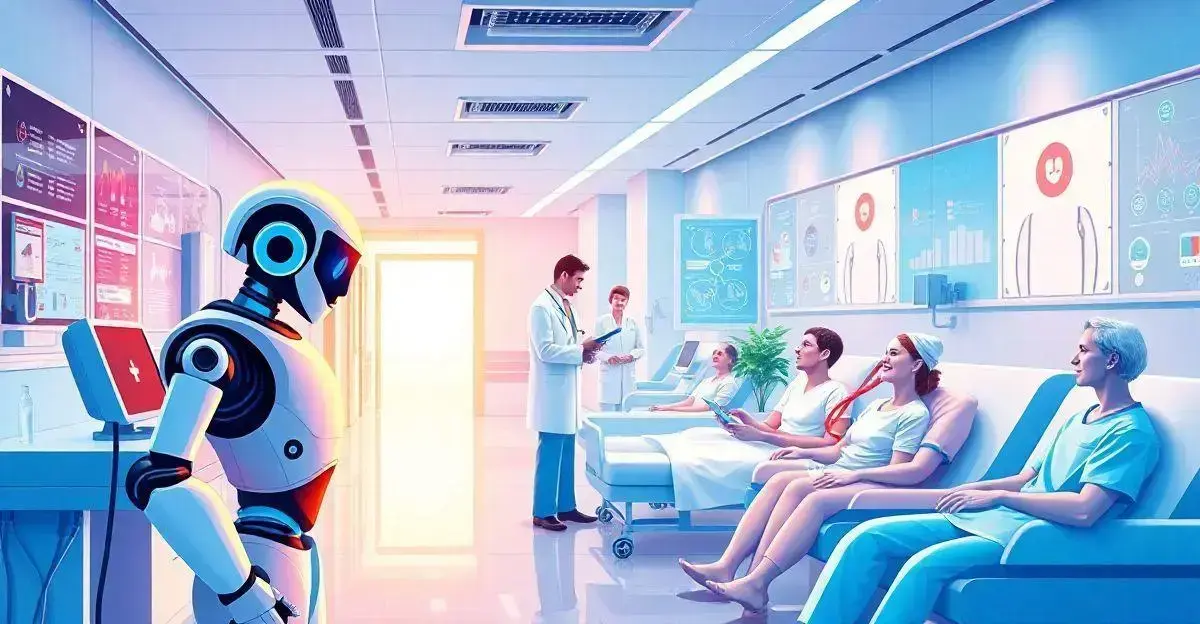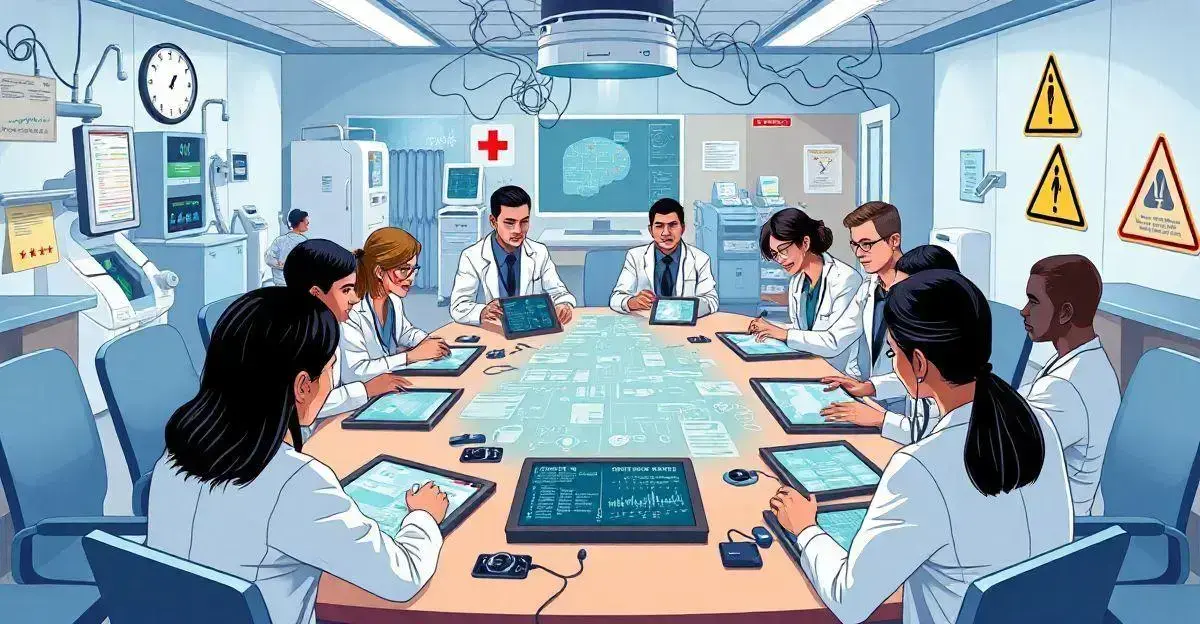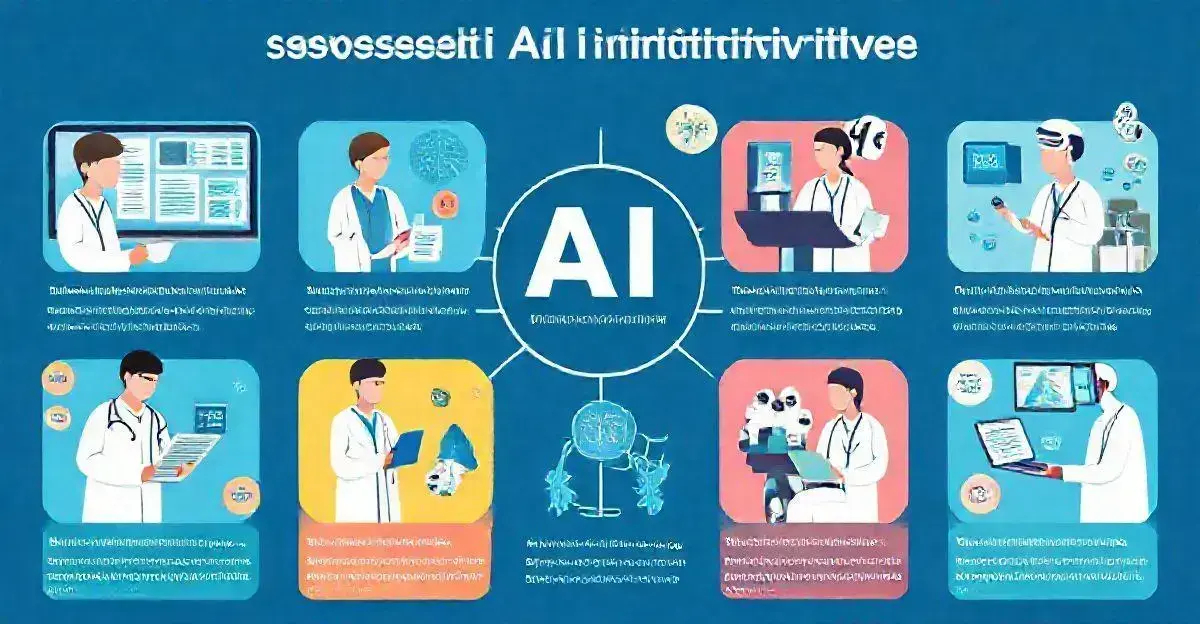AI in healthcare is reshaping the future of medical practices, enhancing accuracy and efficiency in diagnostics and patient care.
With the integration of artificial intelligence, healthcare providers are able to leverage data analytics, automate processes, and improve overall patient outcomes.
Introduction to AI in Healthcare
Artificial Intelligence (AI) in healthcare is transforming how we understand and treat illnesses. From diagnostics to patient management, AI systems utilize vast amounts of data to enhance outcomes and streamline processes. For example, AI can analyze medical images faster and more accurately than human radiologists, leading to quicker diagnoses and improved patient care.
AI algorithms also play a crucial role in predictive analytics, enabling healthcare providers to anticipate outbreaks and manage patient flow effectively. Furthermore, machine learning enhances treatment personalization by examining patient histories and tailoring therapies accordingly.
As the healthcare sector adopts AI technologies, it faces challenges related to data privacy and the need to maintain the human touch in patient interactions. Nevertheless, the potential benefits of AI in healthcare are significant, offering opportunities for improved efficiency and innovative treatments.
Benefits of AI for Patient Care

The benefits of AI for patient care are numerous and impactful. Firstly, AI enhances diagnostic accuracy by analysing medical data and identifying patterns that humans may overlook. With tools like image recognition, doctors can receive quicker feedback on tests and scans, allowing for timely interventions.
Moreover, AI can personalise treatment plans based on individual patient histories and preferences. By analysing past outcomes, AI helps medical professionals tailor therapies that suit each patient’s unique situation.
In addition, AI systems improve patient management through automated appointment scheduling and reminders, reducing no-show rates and optimising healthcare resources. This leads to better overall patient satisfaction.
Furthermore, AI-powered virtual assistants can provide patients with immediate answers to their health questions, thus empowering them to take charge of their health.
AI Applications in Medical Diagnostics
AI applications in medical diagnostics are changing how healthcare professionals detect and treat diseases. One notable application is in radiology, where AI algorithms can analyse images such as X-rays and MRIs with remarkable speed and accuracy. These systems assist doctors by highlighting areas of concern, which can result in quicker diagnosis and treatment decisions.
Another vital application is in pathology. AI tools are increasingly used to examine tissue samples, identifying anomalies that may indicate cancer or other conditions. By analysing thousands of images, AI can help pathologists make more informed decisions.
Moreover, AI-powered decision support systems can analyse patient data from various sources, including electronic health records, to provide insights that assist in making diagnostic decisions. This technology not only enhances accuracy but also reduces the time taken to reach a diagnosis.
AI is also proving useful in predictive analytics. By utilising historical data, AI can forecast potential health issues, allowing for proactive management and treatment. This capability is especially crucial in chronic disease management.
Challenges in Implementing AI in Healthcare

Implementing AI in healthcare presents several challenges despite its potential benefits. One major hurdle is the integration of existing systems with new AI technologies. Many healthcare facilities rely on legacy systems that may not be compatible with modern AI solutions, creating significant operational difficulties.
Another challenge involves data privacy and security. AI systems require vast amounts of data to function effectively, but ensuring patient confidentiality while utilizing AI is crucial. Healthcare providers must comply with privacy regulations, which can complicate the adoption of these technologies.
Additionally, there is a skills gap in the workforce. Many healthcare professionals may lack the necessary training to effectively use AI tools, leading to underutilization of these advanced technologies. This highlights the need for adequate training programs to be developed alongside new AI implementations.
Cost implications also play a significant role. Investing in AI technology, training, and system integration requires substantial resources, which may be challenging for smaller healthcare providers to allocate.
Finally, ethical considerations must be addressed. AI-driven decisions can lead to biases if the data used to train these systems are not diverse. It is essential to tackle these issues to ensure equitable treatment for all patients.
Future Trends of AI in Healthcare
Future trends of AI in healthcare are promising and set to transform the industry further.
Firstly, telehealth services will increasingly integrate AI to enhance remote patient monitoring. This technology will allow for better real-time health data analysis, helping doctors make informed decisions from a distance.
Secondly, robotic surgery will become more common. AI-driven robots can assist surgeons in performing precise operations, reducing recovery time and minimising risks associated with traditional surgery.
Additionally, the use of natural language processing (NLP) in healthcare documentation will improve. AI can streamline the process of transcribing clinical notes, allowing healthcare providers to spend more time with patients rather than on paperwork.
Moreover, personalised medicine will see advancements as AI analyses genetic data. Tailoring treatments based on a patient’s unique genetic makeup will lead to more effective therapies.
Lastly, the focus on AI ethics will grow. As AI integrates deeper into healthcare, ensuring fairness, accountability, and transparency will be essential to maintain trust among patients and providers.
Case Studies: Successful AI in Healthcare Initiatives

Case studies of successful AI in healthcare initiatives illustrate the profound impact these technologies can have on patient care. One notable instance is the use of AI in diagnosing diseases such as diabetes retinopathy. Many hospitals have implemented AI systems that can analyse retinal images to identify early signs of this condition, leading to timely interventions.
Another example is the AI-powered chatbots being used in several healthcare facilities. These chatbots help patients with appointment scheduling and answering common medical queries, which improves patient engagement and satisfaction.
In oncology, AI algorithms are increasingly aiding in predicting patient outcomes. Hospitals employing these tools have reported improvements in treatment planning based on individual patient data, which enhances the effectiveness of therapy.
Additionally, AI has been pivotal in the development of personalised medicine. By analysing genomic data, healthcare providers can offer customised treatment options that cater specifically to each patient’s genetic makeup.
These initiatives highlight not only the effectiveness of AI in improving healthcare delivery but also its potential to save costs and enhance patient outcomes.
The Promise of AI in Healthcare
Artificial Intelligence (AI) holds immense potential to enhance the healthcare sector. The various applications of AI, from diagnosing diseases to personalising treatment plans, demonstrate how technology can improve patient outcomes.
As AI systems continue to advance, we can expect better efficiencies in healthcare delivery and more accurate diagnostics. Embracing AI is not merely an option; it is becoming a necessity for healthcare providers aimed at staying competitive and improving care quality.
However, it is crucial to address challenges such as data privacy and training alongside implementation efforts. By doing so, the full benefits of AI can be realised, ultimately leading to a more effective and patient-centred healthcare system.
